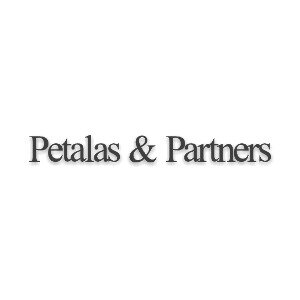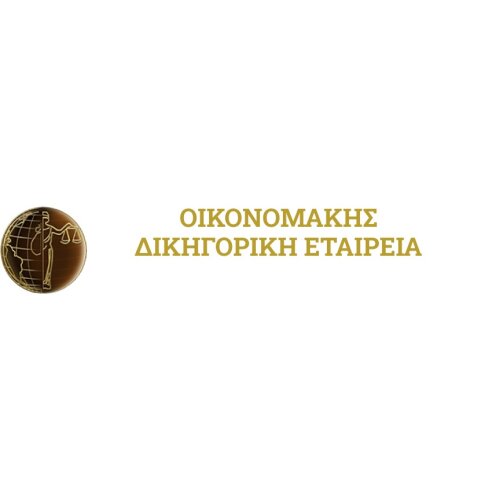Best Public-Private Partnerships (PPP) Lawyers in Piraeus
Share your needs with us, get contacted by law firms.
Free. Takes 2 min.
List of the best lawyers in Piraeus, Greece
About Public-Private Partnerships (PPP) Law in Piraeus, Greece
Public-Private Partnerships (PPP) in Piraeus, Greece refer to collaboration initiatives where public entities, such as municipal or regional authorities, collaborate with private sector partners to finance, build, operate or maintain public infrastructure and services. Common examples include transportation projects, waste management, public facilities, and urban development. PPPs are governed by Greek national laws and specific municipal guidelines, ensuring the projects serve the public interest while leveraging private sector expertise and funding.
In Piraeus, PPP arrangements have been crucial for the development and modernization of public amenities, especially considering the city's major port and rich urban setting. The legal landscape for PPPs involves various approval processes, risk assessments and contract negotiations to guarantee fair and transparent partnerships.
Why You May Need a Lawyer
Navigating PPPs involves complex legal, financial and regulatory issues. People or entities may require legal help with Public-Private Partnerships in Piraeus in the following situations:
- Contract Negotiations: Ensuring fair terms, proper risk allocation and protection of interests for both public and private partners.
- Bidding and Procurement: Understanding tender procedures, compliance requirements and evaluation criteria for project awards.
- Regulatory Compliance: Interpreting Greek and EU laws and adhering to local authority policies.
- Dispute Resolution: Managing conflicts arising from project execution, contractual breaches or partner disagreements.
- Project Finance: Structuring financing arrangements, subsidies and funding through public or private means.
- Due Diligence: Conducting risk analysis and checking partner backgrounds or project feasibility.
- Project Implementation: Dealing with regulatory permits, land use permissions and environmental issues.
Legal support minimizes project risks and ensures legality and transparency at every project stage.
Local Laws Overview
Public-Private Partnerships in Greece, including Piraeus, are primarily governed by Law 3389/2005, which outlines the legal framework for planning, tendering, awarding and managing PPP projects in the country. Key aspects of the local legal context include:
- Eligibility and Scope: Allows a range of public sector projects to be developed through PPPs, subject to governmental standards.
- Approval Process: Requires approval from the Interministerial Committee for PPPs, along with input from municipal authorities in Piraeus for local projects.
- Procurement Rules: Mandates open, competitive Tenders or Requests for Proposals (RFP), in compliance with both Greek national and EU procurement directives.
- Contractual Structure: Details the allocation of risks, payment mechanisms, duration and responsibilities for both parties in the PPP contract.
- Monitoring and Supervision: Sets criteria for ongoing oversight by public authorities and performance indicators for the private partner.
- Dispute Resolution: Allows disputes to be settled through negotiation, mediation or Greek courts, and sometimes international arbitration, depending on contract terms.
Municipal regulations in Piraeus may also impose additional requirements, such as environmental impact assessments and public consultation periods for certain projects.
Frequently Asked Questions
What is a Public-Private Partnership (PPP)?
A PPP is a contractual arrangement between a public entity and a private partner to develop, finance, build or operate a public service or facility, with shared risks and responsibilities.
What kinds of projects can be developed as PPPs in Piraeus?
Typical PPP projects in Piraeus include infrastructure (such as roads, schools and hospitals), port facilities, public transport, waste management and urban development.
What are the main benefits of PPPs?
PPPs leverage private sector expertise and finance, accelerate project delivery, improve service quality and can reduce the public sector’s upfront investment burden.
How are PPPs awarded in Piraeus?
PPPs are awarded through transparent public procurement processes, with open calls for tenders, evaluation of proposals and selection according to set legal criteria.
How long do PPP agreements last?
PPP contracts typically range from 10 to 30 years, depending on the project’s nature, financial model and required maintenance or operation period.
Who oversees PPPs in Piraeus?
Oversight is provided by relevant national ministries, the Interministerial Committee for PPPs, local authorities in Piraeus and regulatory agencies.
What should I look for in a PPP contract?
Key points include clear risk allocation, performance targets, payment terms, penalties for non-compliance and mechanisms for resolving disputes.
Are foreign companies allowed to participate in PPPs in Piraeus?
Yes, foreign firms can participate in PPP projects, provided they meet eligibility, financial and technical standards set out in Greek and EU laws.
What legal risks are involved in PPPs?
Risks include contract termination, project delays, financial defaults and regulatory changes. Legal counsel helps identify and mitigate these risks.
What happens if there is a dispute between partners?
Disputes are resolved according to contract terms, often starting with negotiation or mediation, and if unresolved, proceeding to courts or arbitration.
Additional Resources
If you need further information or support regarding PPPs in Piraeus, consult the following resources:
- General Secretariat for Public-Private Partnerships - oversees national PPP policy and projects in Greece
- Hellenic Ministry of Development and Investments - provides information on investment and business development, including PPP frameworks
- Municipality of Piraeus - local authority responsible for city PPP projects and permits
- Greek Chamber of Commerce and Industry - offers support and guidance for private businesses interested in PPPs
- Legal professional associations and local law firms experienced in PPP law and contract negotiation
Next Steps
If you require legal assistance with a Public-Private Partnership in Piraeus:
- Research legal professionals or firms experienced in PPP law and local regulations.
- Arrange a consultation to discuss your needs, whether you are a public authority, business or investor.
- Prepare relevant documents, such as project proposals, tender announcements or existing contracts, for review.
- Clarify your objectives and any concerns with your lawyer to ensure your interests are protected throughout the PPP process.
- Stay informed about local regulatory changes and best practices in project management and compliance.
A qualified lawyer will provide the advice and representation you need to navigate the complex legal environment of PPPs in Piraeus, ensuring your project is successful and compliant.
Lawzana helps you find the best lawyers and law firms in Piraeus through a curated and pre-screened list of qualified legal professionals. Our platform offers rankings and detailed profiles of attorneys and law firms, allowing you to compare based on practice areas, including Public-Private Partnerships (PPP), experience, and client feedback.
Each profile includes a description of the firm's areas of practice, client reviews, team members and partners, year of establishment, spoken languages, office locations, contact information, social media presence, and any published articles or resources. Most firms on our platform speak English and are experienced in both local and international legal matters.
Get a quote from top-rated law firms in Piraeus, Greece — quickly, securely, and without unnecessary hassle.
Disclaimer:
The information provided on this page is for general informational purposes only and does not constitute legal advice. While we strive to ensure the accuracy and relevance of the content, legal information may change over time, and interpretations of the law can vary. You should always consult with a qualified legal professional for advice specific to your situation.
We disclaim all liability for actions taken or not taken based on the content of this page. If you believe any information is incorrect or outdated, please contact us, and we will review and update it where appropriate.

















